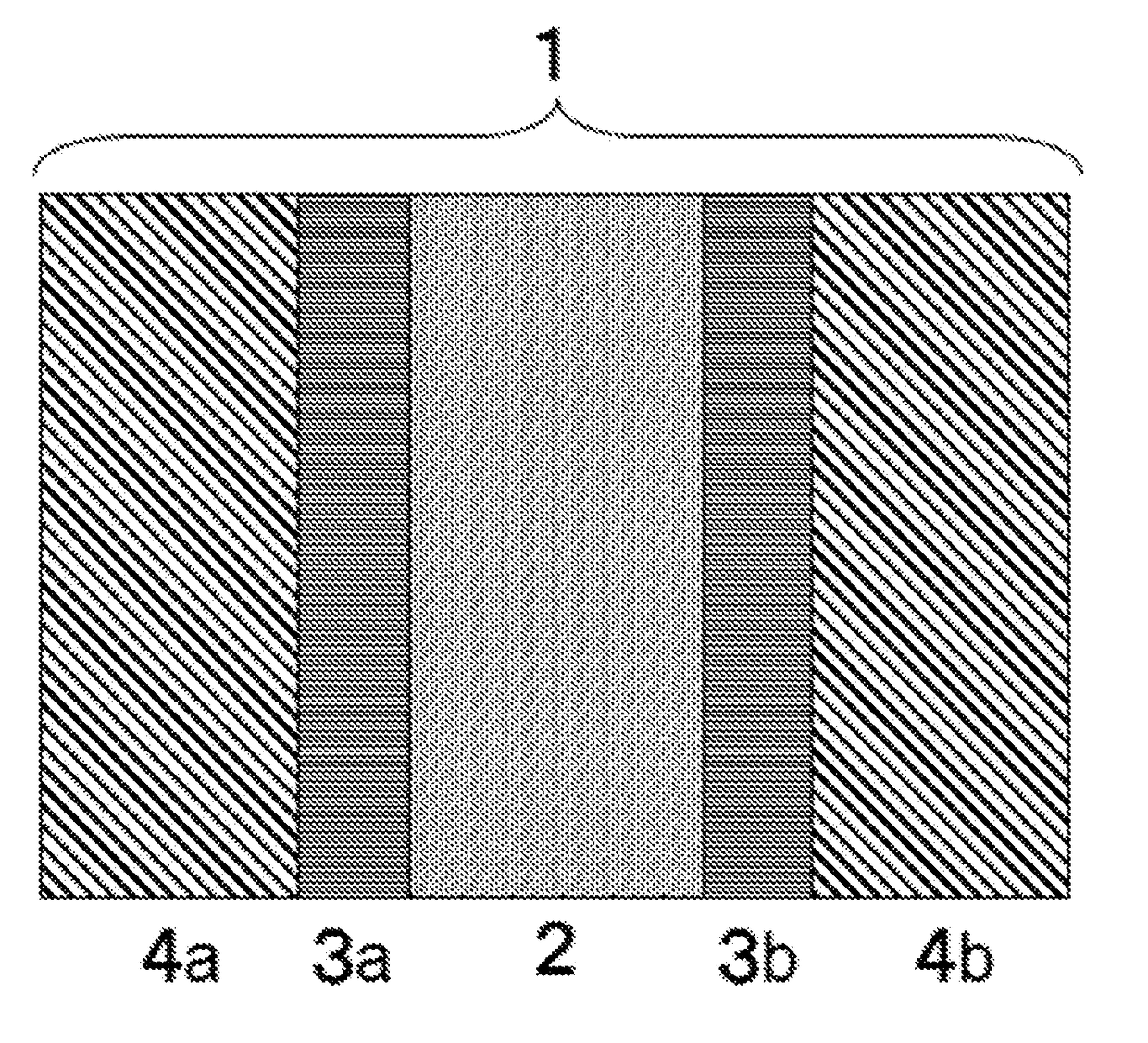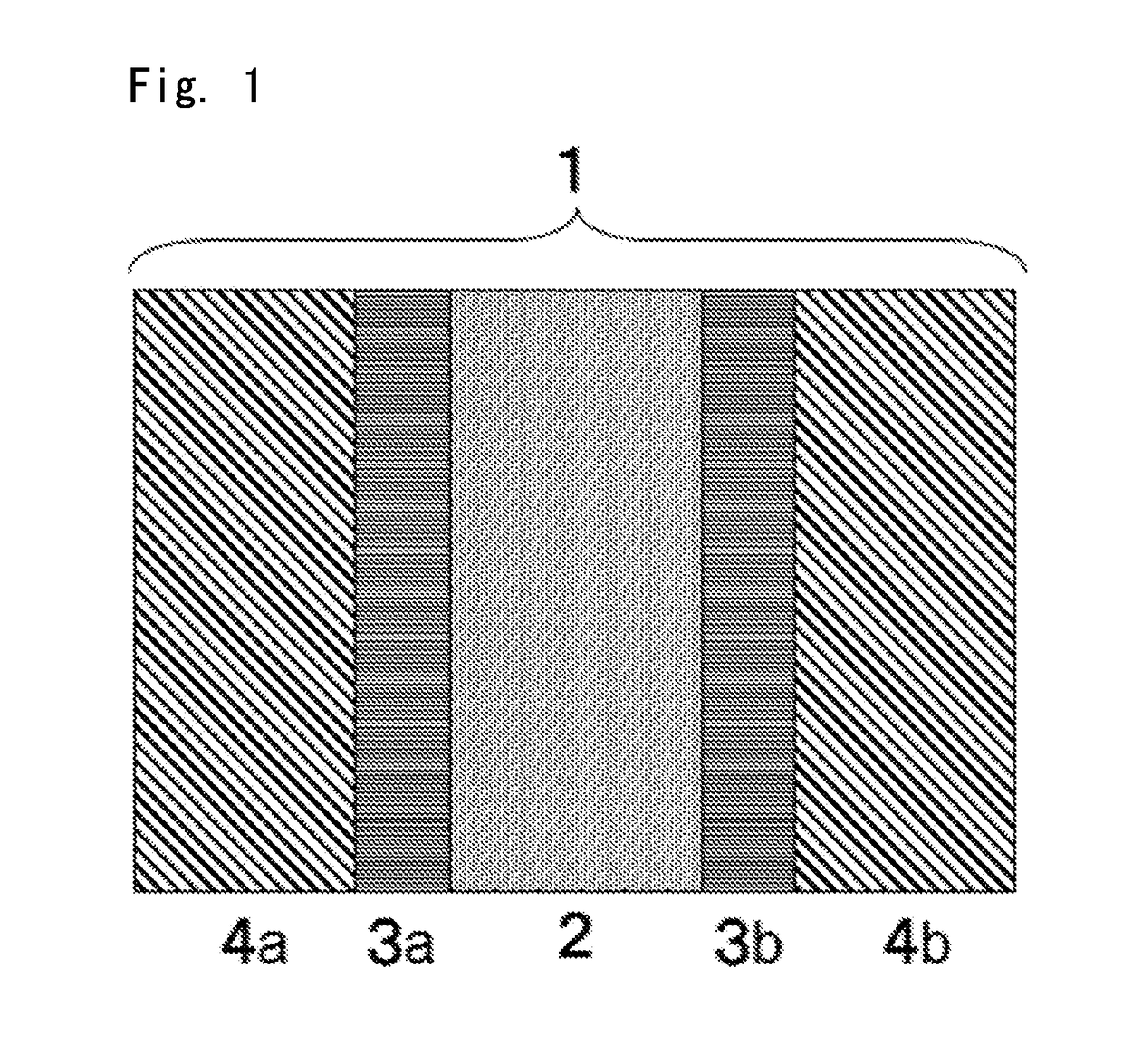Coated metal sheet and coated metal sheet further covered with an organic resin film
a technology of organic resin film and coated metal, which is applied in the direction of transportation and packaging, rigid containers, packaging, etc., can solve the problems of affecting the production process of organic resin-covered metal sheets, affecting the quality of organic resin films, etc., to achieve excellent hot water resistance adhesion, excellent dent resistance, and excellent applicability for producing cans
- Summary
- Abstract
- Description
- Claims
- Application Information
AI Technical Summary
Benefits of technology
Problems solved by technology
Method used
Image
Examples
example 1
[0131]By using 333 parts of an aqueous dispersion solution of the polyester resin A (100 parts of solid content), 40 parts of an n-butanol solution of the above phenol resin (20 parts of solid content), 3 parts of tannic acid, one part of dodecylbenzenesulfonic acid, 0.3 parts of triethylamine, 400 parts of 2-propanol and 1700 parts of ion-exchanged water, there was prepared an aqueous coating composition of a solid content of about 5%. As the tannic acid, there was used the “Tannic Acid” produced by Sigma Aldrich Co LLC. and as the dodecylbenzenesulfonic acid, there was used the “Dodecylbenzenesulfonic Acid (soft type) (mixture)” produced by Tokyo Chemical Industry Co., Ltd.
(Method of Forming the Coating on the Metal Sheet)
[0132]An aluminum sheet (Alloy sheet 3104, 0.28 mm in thickness) was used as the metal sheet. First, the aluminum sheet was dipped in an aqueous solution (50° C.) containing 2% of an alkaline cleaner “Surf Cleaner 420N-2” (trade name) produced by Nippon Paint Co....
PUM
| Property | Measurement | Unit |
|---|---|---|
| glass transition temperature | aaaaa | aaaaa |
| molar ratio | aaaaa | aaaaa |
| acid value | aaaaa | aaaaa |
Abstract
Description
Claims
Application Information
 Login to View More
Login to View More - R&D
- Intellectual Property
- Life Sciences
- Materials
- Tech Scout
- Unparalleled Data Quality
- Higher Quality Content
- 60% Fewer Hallucinations
Browse by: Latest US Patents, China's latest patents, Technical Efficacy Thesaurus, Application Domain, Technology Topic, Popular Technical Reports.
© 2025 PatSnap. All rights reserved.Legal|Privacy policy|Modern Slavery Act Transparency Statement|Sitemap|About US| Contact US: help@patsnap.com


